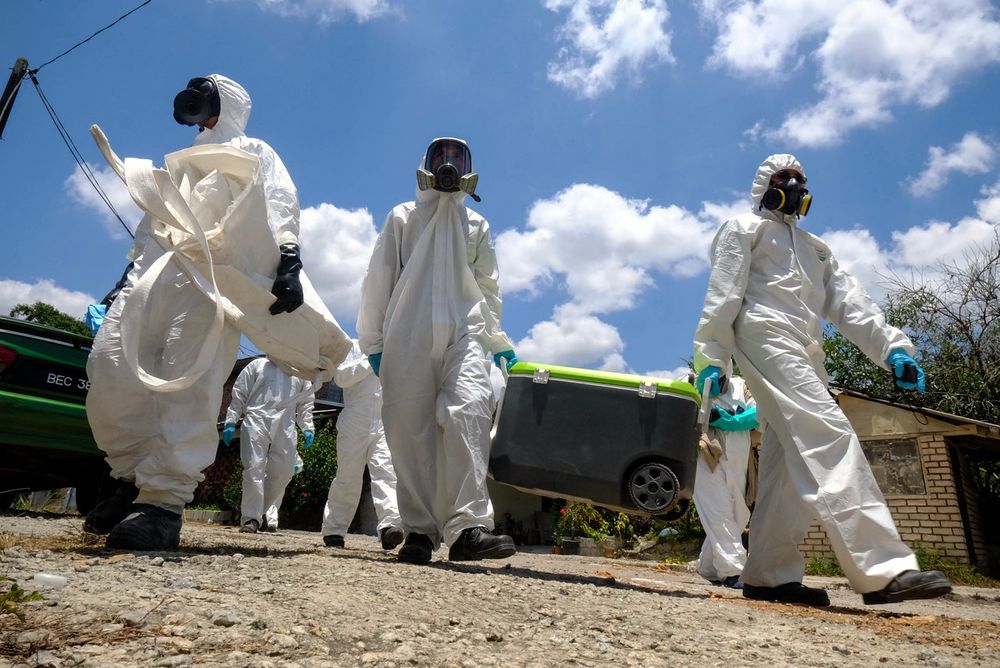JOHOR BARU, Dec 3 — The trial of Sungai Kim Kim chemical dumping case began in the Sessions Court here today.
The trial is being heard before Judge Wan Mohd Norisham Wan Yaakob with the four accused — N. Maridass, 35; Wan Jing Chao (Singaporean), 34; Yap Loke Liang, 36; and Sim Wei Der (Singaporean), 50, were seen entering the courtroom at 10.29am.
Deputy Public Prosecutors Muhammad Syafiq Mohd Ghazali and Nor Azura Jumuddin are appearing for the prosecution while Maridass is represented by counsel S. Ratakrishna; Jing Chao and Loke Liang are represented by counsel G. Subramaniam Nair and Wei Der by counsel Joshua Tay.
The trial was supposed to begin on October 16, but was postponed at the request of the defence because the lawyers representing the defendants, were attending a hearing in the High Court on that day.
On March 24, Maridass, a lorry driver at a used tyre processing company, was accused of disposing of the scheduled wastes into the river using a Mitsubishi lorry and a semi-trailer tank.
The disposal of the wastes was done without prior approval from the Director-General of Environmental Quality.
Three company directors, Jing Chao, Loke Liang and Wei Der, were charged with abetting Maridass in disposing of the scheduled wastes into the river using the same vehicle.
They were alleged to have committed the offence at the Sungai Kim Kim bridge-widening project site between 12.01am and 1am on March 7.
Maridass was charged under Section 34B (1)(a) of the Environmental Quality Act 1974, punishable under Section 34(B)(4) of the same Act, which carries a maximum jail term of five years and fine of RM500,000, upon conviction.
The three directors, on the other hand, were charged under Section 34B (1)(a) of the Environmental Quality Act 1974, punishable under Section 34(B)(3) of the same Act and read together with Section 42 of the same Act, which also carries a maximum jail term of five years and fine of RM500,000, upon conviction.
The three directors were also slapped with 15 charges each, under Rule 3(1) of the Environment Quality Regulations (Scheduled Wastes) 2005 and Environmental Quality Regulations (Clean Air) 2014.
They were accused of failing to conduct air quality monitoring and failing to notify the authorities about the production of a scheduled waste. — Bernama



















